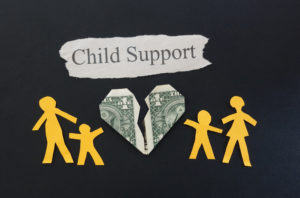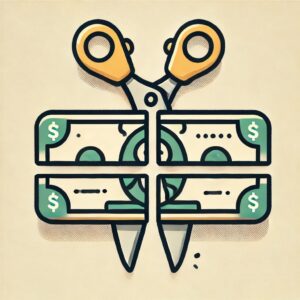 How Chapter 13 Bankruptcy Works with Child Support
How Chapter 13 Bankruptcy Works with Child Support
Whether you owe child support or you’re someone waiting to receive it, understanding how Chapter 13 and child support impact each other could make things a lot easier for you.
So here’s how bankruptcy might impact your situation, no matter which side of the equation you’re on.
What Is Chapter 13 Bankruptcy?
 If You Owe Child Support, Chapter 13 Can Help You Catch Up
If You Owe Child Support, Chapter 13 Can Help You Catch Up
Child support debt can pile up quickly, and falling behind can result in serious consequences, including wage garnishment, license suspension, or even jail time.
Chapter 13 bankruptcy doesn’t remove that debt. But it provides relief by helping you manage your child support debt responsibly.
Catch Up on Past-Due Payments
Chapter 13 lets you include overdue child support in your repayment plan. Instead of facing overwhelming lump-sum demands, you’ll repay your back child support over three to five years. This offers a lot of people the breathing room to catch up.
 Stop Wage Garnishments and Enforcement Actions
Stop Wage Garnishments and Enforcement Actions
Filing Chapter 13 immediately triggers an automatic stay, which temporarily stops wage garnishments and other collection actions. While you’ll still need to pay your ongoing child support, you don’t have to manage it with the impossible burden of losing up to 25% of your paycheck every week.
Priority Treatment for Child Support Debt
Under bankruptcy law, child support debt is considered a “priority debt.” That means it gets paid first and has to be fully repaid through your Chapter 13 plan. Your repayment amount will reflect your past-due balance and your ongoing obligations.
Important Note
Chapter 13 bankruptcy doesn’t erase your child support obligations. You’re required to continue making regular payments as usual during and after your bankruptcy case. But it does make those regular payments much more possible for most people.
 If You’re Owed Child Support, Chapter 13 Can Protect Your Rights
If You’re Owed Child Support, Chapter 13 Can Protect Your Rights
If someone owes you payment, and you find out they’re filing bankruptcy, it’s not a cause for concern. In fact, by their filing bankruptcy, Chapter 13 can help make sure you get paid.
Priority Debt Means You Get Paid First
Child support debts have to be repaid before most other debts. If your ex-spouse or partner files Chapter 13, their repayment plan is required to include full payment of past-due child support.
Regular Payments Through the Bankruptcy Trustee
Even better, payments in this type of bankruptcy go through a court-appointed trustee. That means you’ll get regular, consistent payments to catch up on overdue child support. This structure can often mean you receive fewer missed or late payments than before the bankruptcy filing.
Automatic Stay Doesn’t Stop Ongoing Support
Although bankruptcy stops most collection actions, it doesn’t stop efforts to collect ongoing child support payments. You still have the right to receive current monthly payments, even during the bankruptcy case.
 Our Compassionate Chapter 13 Attorneys Can Help
Our Compassionate Chapter 13 Attorneys Can Help
Chapter 13 bankruptcy can help stabilize your financial situation, allowing you to focus on supporting your family. In situations where one parent has a lot of debt, it can make life much easier for everyone.
If you’re catching up on past-due payments, our compassionate, experienced attorneys can guide you through the process. We help you clearly understand your rights, obligations, and the best ways to meet them.
If you have questions about Chapter 13 bankruptcy and child support, please reach out to us today. Contact us online or call 901-327-2100.
We’re here to help you protect your financial future and your family’s well-being.
